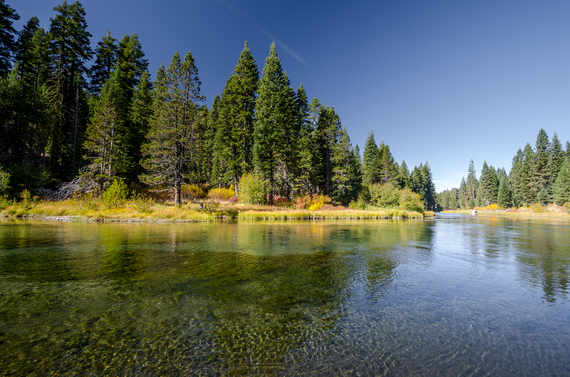- November 20, 2015
- in Green Tips
- by marcos
- 551
- 0

Over the last few months, we’ve showcased the many benefits that America’s family-owned forests provide to our country, which were highlighted in the Vanishing Pieces of the Puzzle series – from clean water to recreational opportunities and wildlife habitat, to carbon reduction and wood supply. We also described the threats facing our family-owned forests and these benefits. These growing threats are exactly why we need to do everything we can to ensure our forests continue to provide these amazing benefits.
However, not all threats and not all benefits are equal due to the diverse nature of our forests.
Take, for example, the carbon sink our forests provide. American forests offset roughly 15 percent of our annual carbon emissions that contribute to climate change, but we can no longer afford to take these forests’ carbon capacity for granted. Last week, the U.S. Forest Service released a report which projected the ability of forests to sequester carbon could decline as much as 35 percent within just 25 years. Forests in the Rocky Mountains, in particular, could see their carbon-storing benefits completely eliminated because of pests and wildfire. If this happened we run the risk of needing to find other, possibly more costly ways, to reduce our carbon output, unless we proactively work to protect our forests.
In addition to the threats to our forests’ carbon storage, their ability to provide clean water is also at risk. In recently released research from the American Forest Foundation (AFF), we focus in on the high wildfire threat to the already scarce water supply that comes from Western forests. While only 35 percent of the West is forested, 65 percent of the clean drinking water supply comes from these forests. But because wildfires are now reaching catastrophic levels, this water supply is at risk to severe erosion, debris flows and water quality degradation.
To date, 2015 has been one of the worst fire seasons in history with 9.8 million total acres destroyed. Despite the fact that so many of our West’s forests are part of federal lands, wildfire is not just a public lands issue. The AFF report highlights that one-third, or 52 million acres, of forests with high wildfire risk fall on private and family owned land- an area the same size as the state of Kansas. What’s more, when you look at the lands at a high risk of wildfire that are in important water supply watersheds, 40 percent are private and family-owned.
Whether you care most about drinking water, clean air or any of the other benefits our forests provide, you can see the importance of addressing our forests’ increasing vulnerability to these threats.
The benefits forests provide extend far beyond the borders of their owners. In fact, every one of the nearly 319 million Americans in this country receives something from them. Because these are public benefits, some of the solutions start at the top with our policymakers. We must continue to maintain and create federal programs that support keeping our forests as forests and promote working forests.
Second, it’s important we continue to support our family forest owners on the ground with educational and technical assistance. AFF, in particular, continues to lead efforts with local partners in critical ecosystems to engage family forest owners in restoring forest resiliency and combating threats to forest health. With our partners, we are able to provide resources and tools to help landowners with sustainable forest management, as well as the tools to advocate for policy solutions.
Lastly, we need to continue to promote and use more wood products. Using wood products and building green not only help store carbon but also create markets for forest owners. These markets create the necessary income needed for family forest owners to care for their forests and keep them healthy.
Given all the threats our family forests face and the benefits at stake, we must make forests a priority if we are to minimize the risks like catastrophic wildfire and continue to reap the benefits our forests provide us for generations to come.
— This feed and its contents are the property of The Huffington Post, and use is subject to our terms. It may be used for personal consumption, but may not be distributed on a website.


